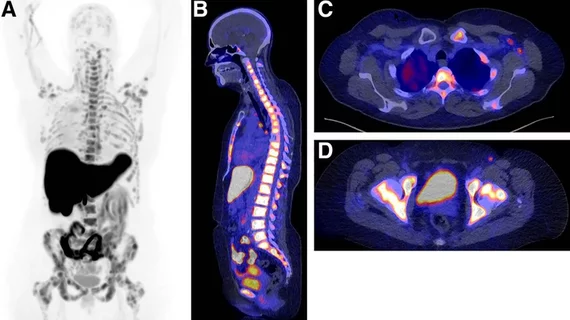FDA-approved PET agent helps solve 87% of diagnostic breast cancer dilemmas
A federally approved imaging agent can help radiologists and other physicians solve difficult diagnostic decisions for breast cancer patients, according to new data.
The estrogen receptor is a key feature of breast cancer and is expressed in 79% of tumors. While ER-positive patients will likely respond to therapy, clinical dilemmas arise when ER expression varies between tumors or if biopsies can’t be performed safely.
Dutch researchers found 18F-FES PET imaging can significantly help these patients. The technique assisted providers with 87% of scans, authors reported in the September issue of the Journal of Nuclear Medicine.
“18F-FES PET has the potential to visualize the ER expression of all tumors across the body and could provide helpful information regarding clinical dilemmas in breast cancer patients,” Carolina P. Schröder, MD, PhD, medical oncologist at the University Medical Center Groningen in the Netherlands added Wednesday.
The U.S. Food and Drug Administration approved 18F-FES PET back in 2020. Schröder et al. tested its efficacy during problematic situations, which included an inability to assess the disease via standard workup, unclear ER tumor status, or failure to determine which tumor caused cancer to spread.
Using this molecular imaging approach, clinicians gained the information needed to make personalized treatment decisions. In 93% of solved dilemmas, experts based their decisions solely on 18F-FES PET results.
Problems with ER-positive scans were more likely to be resolved compared to those involving negative images. But the frequency of solved cases was not associated with the type of dilemma, the authors noted.
“This is the largest study to show the value of 18F-FES PET in a ‘real daily clinical practice,’” Schröder added. “These findings support the use of 18F-FES PET for optimal patient outcomes and may support broad implementation of 18F-FES PET in clinical practice.”

